|
H.G. Wells: Do you still maintain this is all poppycock? Amy Robbins: That wasn’t quite the word I had in mind. It was probably inevitable that I would fall for TIME AFTER TIME (1979), Nicholas Meyer’s stunning debut thriller. Back then, it had all the elements I had come to adore in my 17 year old heart: time travel, H.G. Wells (BIG fan of WAR OF THE WORLDS), alternative history, a gentle satire of today’s fads, and even Jack the Ripper. Yep, I am an amateur Ripperologist (when my family visited London last fall, I made us go on one of those tours). I first heard about TIME AFTER TIME while watching Siskel & Ebert. They used to highlight hidden gems: movies they felt were getting lost at the box office. One week they picked TIME. When it opened soon after at the nearby Clarkston Cinema, my all-time favorite movie theater, I was there for opening night. TIME AFTER TIME tells the fanciful tale of author H.G. Wells (Malcolm McDowell) traveling through time from 1893 to modern day -- well, 1979 -- pursuing Jack the Ripper. It tries to answer questions that history can’t. How did Wells seem so knowledgeable about the future? Did he really build a time machine while writing the classic novel of the same name? Why did Jack the Ripper seem to vanish from history? TIME answers all those questions and more. It is a neat thriller with an inventive script, solid performances, and some knowing social commentary slid in amongst the thrills and humor. After Wells discovers that his best friend, John Leslie Stephenson (David Warner) is really Jack the Ripper – and that he has used Wells’ new time machine to escape the authorities, Wells follows Stephenson into the future. They both find themselves dropped in 1979 San Francisco and both soon discover that the future is not what either expected. Wells expected a harmonious utopia filled with peace and understanding. Stephenson discovers that he has to up his game: “Ninety years ago I was a freak. Today, I'm an amateur.” I’m not going to give away the film’s many clever twists and reversals. They are better experienced without much prior knowledge. What continues to stand out for me three decades later are: 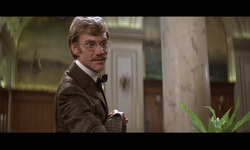 Malcolm McDowell as H.G. Wells. He strikes just the right balance of nerdy inquisitiveness and debonair charm. He is shy in public but worldly in private. He has a child’s sense of discovery but he is also a man out of step with whatever time he is in: too modern for 1893 and too old-fashioned for 1979. (I can relate!) As he tells Amy in one of their first heart to hearts: “You’re very perceptive. Lost is what I am.” Events in the film force him to change from a man of thought to a man of action. From a man alone to a man who’ll do anything to win the woman he loves. Sorry CLOCKWORK ORANGE. This is McDowell’s finest performance. 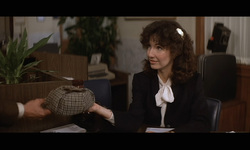 This is the film that made Mary Steenburgen a star and she is still a major revelation in it. (Steenburgen went straight from this to winning an Oscar for MELVIN & HOWARD (1980) – another forgotten movie gem). Sexy and funny, feminine and resourceful, Amy uses her brains to figure out the situations she finds herself in. She is Wells’ dream girl -- the only part of the 20th century that actually worked out the way he hoped back in 1893. The romance between them is deeply affecting and the chemistry between the two actors is palpable (McDowell and Steenburgen fell in love during the film and married soon after). 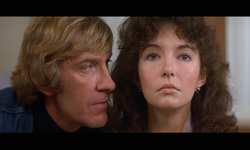 Their romance is perfectly balanced by David Warner as Jack the Ripper. He is sadistic but never wholly unsympathetic. Despite his courtly charm, Stephenson knows he will never be anything but a heartless killer with mommy issues -- symbolized by the brandishing of his pocket watch shortly before he kills. He may be a demon but he knows he is. Part of him wants to keep killing and part of him wants this to end. Meyer also turns a wry eye on progress. How things have changed and not changed in food, movies, notions of honor, and the battle between the sexes. Many of his observations have only gotten funnier since 1979. In the end, Wells realizes that, “Every age is the same. It is only love that makes any of them bearable.” In short, the movie blew me away from the get go. This was the age before films regularly came out on VHS/DVD six months later (chronicled here) so I did the next best thing. I saw TIME 4 times at the Clarkston in the span of one week. I bought the novelization. I still regularly listen to the soundtrack album by the great Miklos Rozsa. Wells’ phrase “To be quite candid” has unconsciously entered my common expressions. There are a few clunky things. Wells seems too smart to pose as Sherlock Holmes when talking to the cops. The film’s 1970s roots make it feel rather dated at times. Many of the locations they visit (the rotating Equinox restaurant, the Hyatt Regency hotel) have since been torn down. It gives the movie a bit of a time capsule feel. But what continues to hang with me and become even more relevant the older I get is the film’s views on violence. How no society can hope to thrive as long as the population embraces it. As Stephenson says earlier on: “You haven’t gone forward, Herbert. You’ve gone back. The future is not what you thought. It’s what I am.” When the Ripper starts closing in and the two men clash for possession of the time machine as a symbol of how the future will be, Amy advises Wells to buy a gun. Wells’ response continues to stick with me down through the years. It came back in spades earlier this year when the NRA started arguing after Newtown that we all should start packing heat:
WELLS: I wouldn’t purchase a weapon now even if I could. AMY: Oh what is this? Victorian chivalry or something? We’re playing for keeps here. WELLS: Exactly. And Stephenson was right about one thing. Violence is contagious like measles. And the trouble with progress is not that things are more efficient. The trouble is they’re the same things. World War This. World War That. Oh, we’re obviously killing much more efficiently but we’re still killing. Well, I’m not going to stoop to that man’s barbaric level. The first man to raise a fist is the man who's run out of ideas. [Pause] AMY [first time she says it]: I love you. And I love this movie. It is suspenseful, romantic, funny, and insightful. To be quite candid, it is one of the movies that changed my life. Check it out!
0 Comments
Leave a Reply. |
Archives
August 2022
Categories |
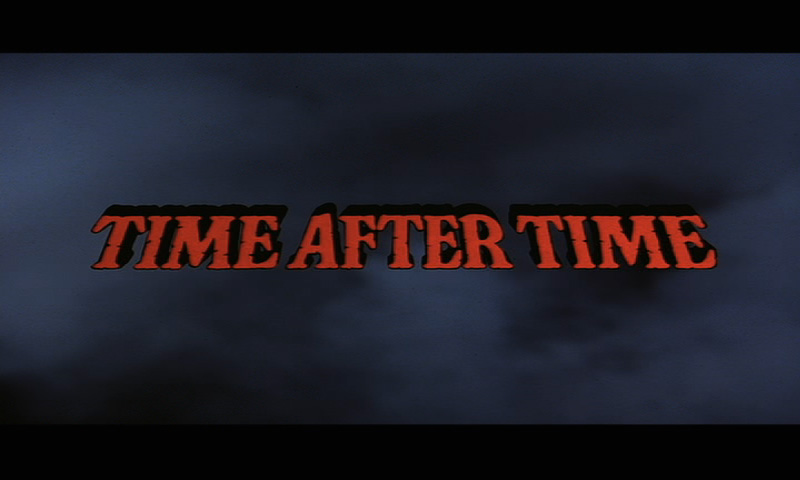
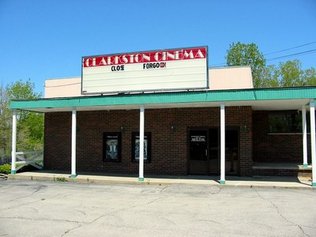
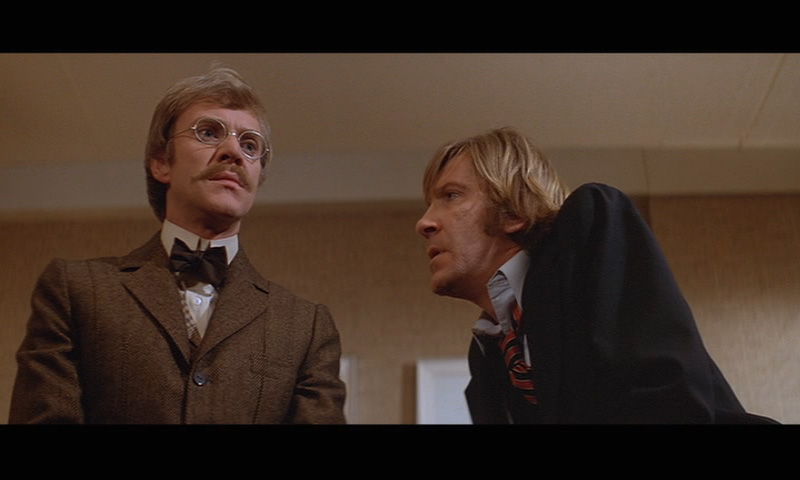
 RSS Feed
RSS Feed